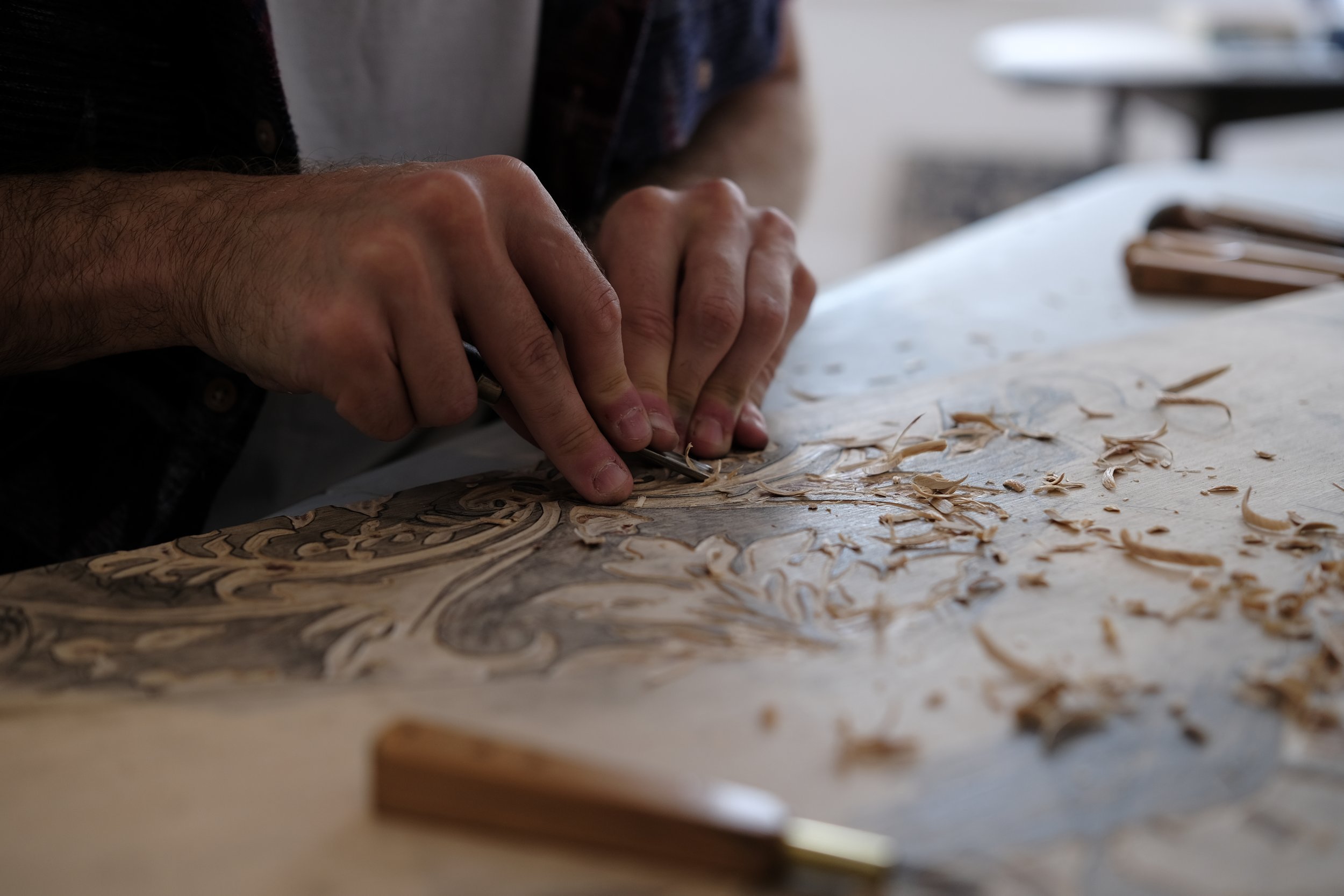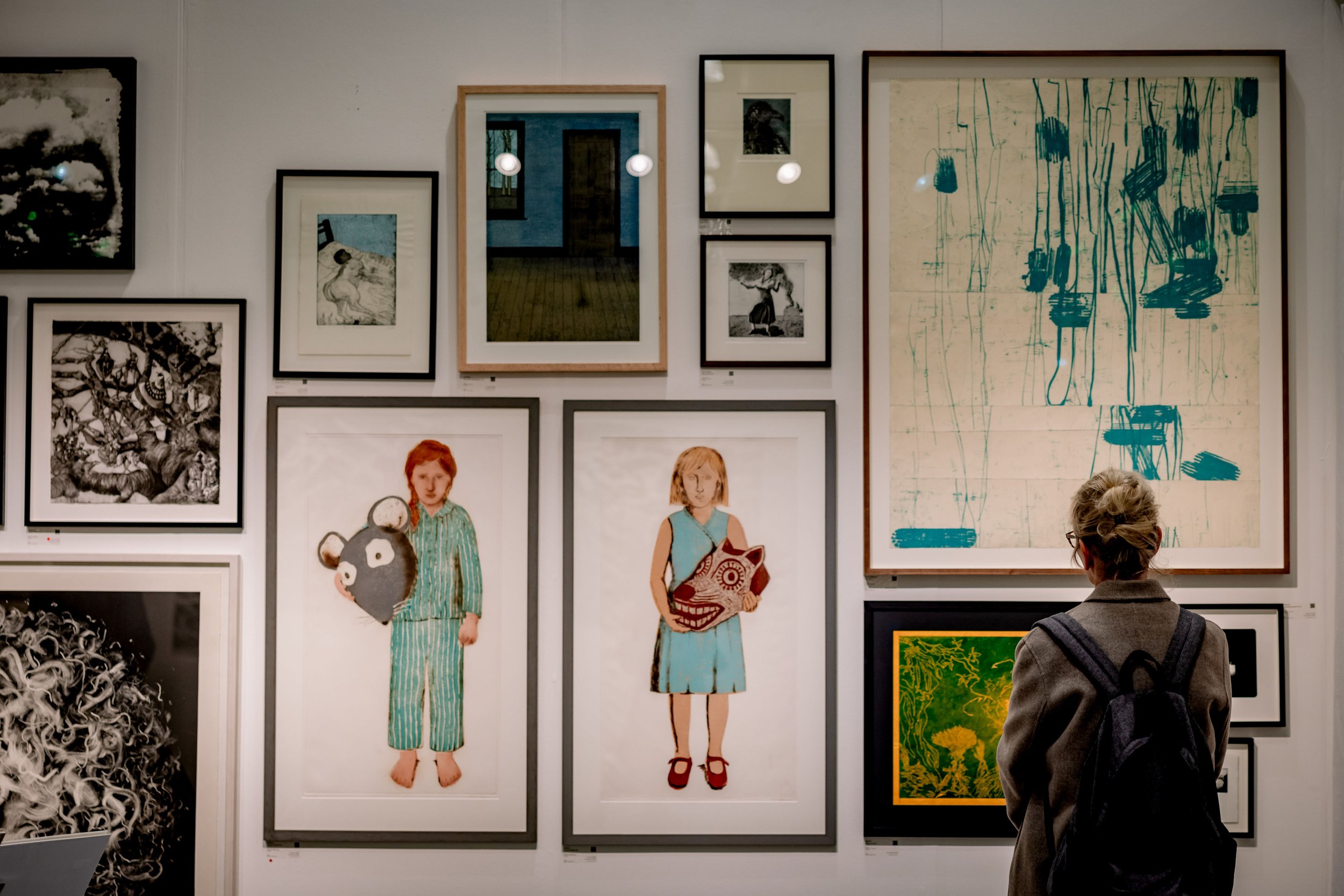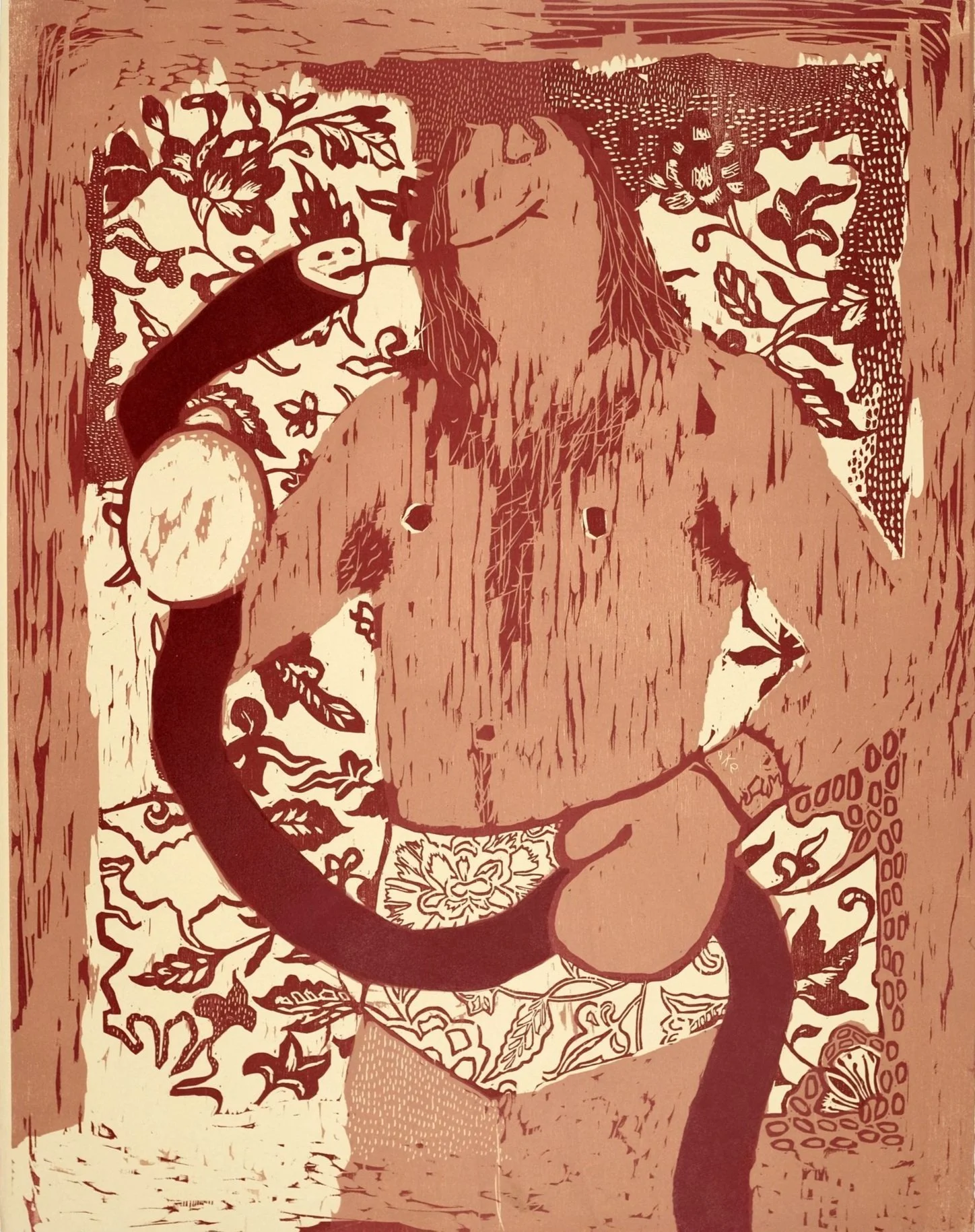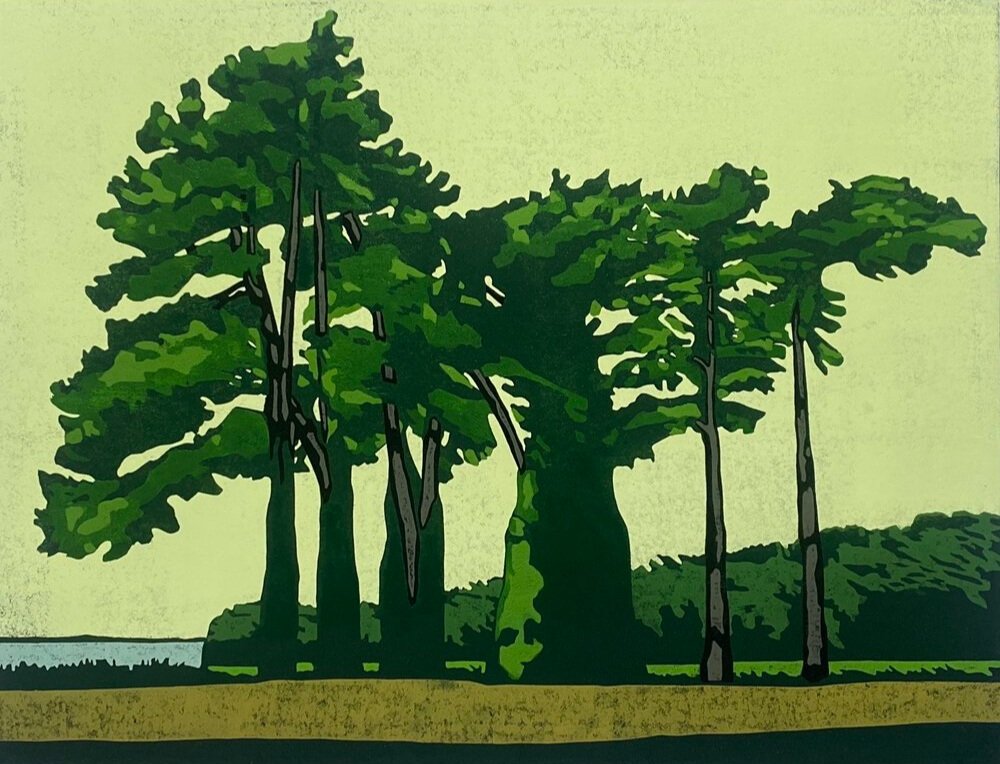
WHAT IS A RELIEF PRINT?
Relief printing is where the areas around the image to be printed are cut away, leaving the image on the block in relief. The raised areas are then inked and transferred onto a second surface, usually paper. Think of potato printing as a child – this is a very basic style of relief printing.
Process
Carving: In this initial stage, the image is intricately cut into a plate or block, meticulously removing the specific areas that will not hold any ink.
Inking: Once carved, sticky relief ink is evenly spread across the raised surface using a roller to ensure uniform coverage.
Printing: The inked design is then carefully pressed onto paper, which can be done either manually by hand or with a printing press. Careful alignment is essential to achieve clear and precise prints.
Finishing: After printing, the artwork is allowed to dry and can be enhanced further with additional layers or colors by employing techniques such as multi-block or reduction printing.





